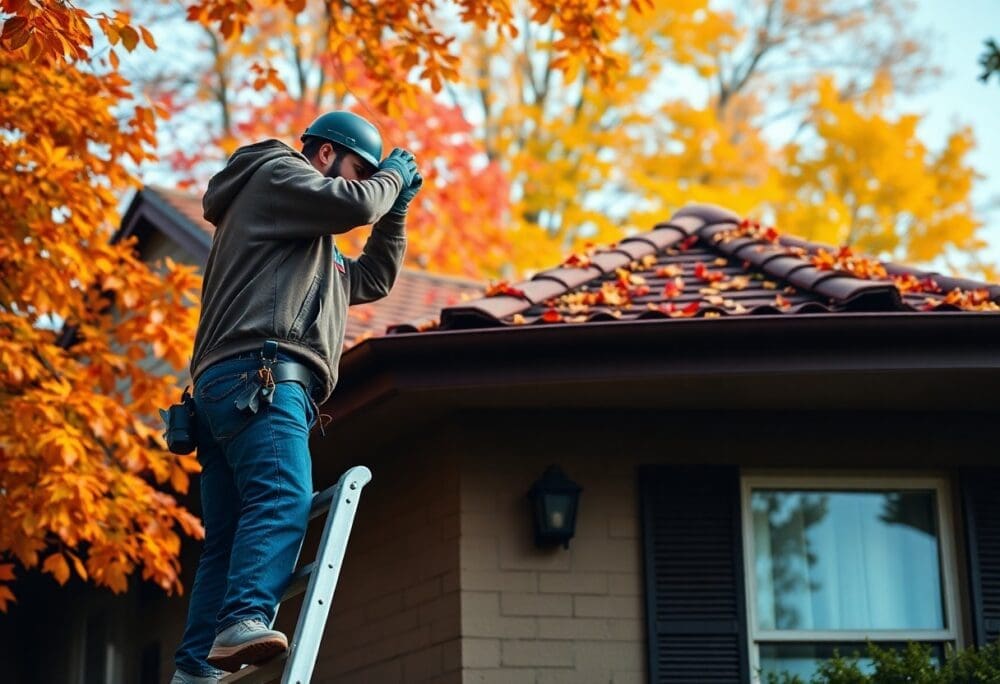With regular seasonal roof inspections, you can significantly extend the life of your roof and safeguard your home from costly repairs. These inspections allow you to identify potential issues before they escalate, ensuring that your roof remains in optimal condition through all weather conditions. By being proactive in assessing your roof seasonally, you can protect your investment, enhance energy efficiency, and ultimately save money in the long run. Discover how prioritizing roof inspections can lead to a secure and durable shelter for you and your family.
Key Takeaways:
- Seasonal roof inspections help identify and address potential issues before they escalate, protecting the integrity of your home.
- Regular assessments can extend the lifespan of your roof by ensuring timely repairs and maintenance are performed.
- Investing in seasonal inspections can save homeowners money in the long run by preventing costly repairs and damage from severe weather conditions.
Understanding Seasonal Roof Inspections
While seasonal roof inspections are crucial for the longevity of your home, they allow you to identify potential issues before they escalate. By regularly examining your roof for signs of wear and damage, you can ensure that your roof remains in good condition and protects your property effectively. These inspections help you stay ahead of any seasonal challenges, providing peace of mind and saving you money on major repairs in the future.
Importance of Timing
After each significant season, it’s beneficial to conduct a thorough roof inspection to address specific weather-related wear and tear. This timing is vital because each season brings unique challenges that can impact your roof’s integrity. By aligning your inspections with seasonal changes, you can promptly tackle issues such as ice buildup in winter or storm damage in spring.
Common Seasonal Issues
One of the key aspects of seasonal inspections is identifying common issues that arise during different times of the year. Each season can bring its own set of problems, from spring rains to winter snowfalls, which can cause various types of damage to your roof if left unchecked.
For instance, during the fall, fallen leaves and debris can clog your gutters, leading to water backup that may damage your roof’s structure. In winter, snow accumulation can create ice dams, preventing proper drainage and risking leaks into your home. Spring rains can lead to mold growth if small leaks are present, while summer storms may cause missing shingles or other types of storm damage. By addressing these seasonal challenges through regular inspections, you enhance your roof’s durability and extend its lifespan.
Early Detection of Damage
Any homeowner knows the importance of maintaining a roof, and seasonal inspections enable you to catch issues before they escalate. With The Benefits of Preventative Roof Inspections, you can ensure that potential damage is identified early, safeguarding both your home and your investment.
Identifying Wear and Tear
Along with early detection, seasonal inspections help you identify wear and tear that may not be visible to the untrained eye. Regular assessments allow you to pinpoint problem areas such as loose shingles, rusting flashings, or weakened underlayment before they lead to larger concerns.
Preventing Costly Repairs
At seasonal inspections, you can nip potential problems in the bud, saving you from expensive repairs down the road. By addressing minor issues now, you preserve the integrity of your roof and avoid extensive damage that could result from neglect.
This proactive approach can significantly reduce your long-term maintenance costs. Investing in regular inspections means you are more likely to catch leaks, structural weaknesses, or damage from environmental factors before they become substantial issues, ultimately extending the life of your roof and protecting your property value.
Enhancing Roof Longevity
Once again, maintaining your roof through regular seasonal inspections can greatly enhance its longevity. By spotting and addressing issues early, you prevent minor problems from escalating into significant repairs, ensuring your roof remains in optimal condition for many years. Investing time in inspections ultimately safeguards your home’s structural integrity and helps you save money in the long run.
Regular Maintenance Benefits
Before considering the expense of a full roof replacement, recognize the immense value of regular maintenance. By scheduling consistent inspections, you can identify potential issues before they develop into costly repairs, making it a smart investment in your home’s protection.
Extending Roof Life Expectancy
With ongoing maintenance and timely repairs, you can significantly extend your roof’s life expectancy. This proactive approach not only ensures your roof performs well against environmental challenges but also maximizes your investment in one of your home’s most necessary components.
Enhancing the life expectancy of your roof involves not just repairs, but also preventive measures like cleaning gutters and removing debris. Such practices ensure that water drainage is effective, reducing the risk of leaks and structural damage. Furthermore, routine inspections allow you to spot wear and tear on roofing materials before they lead to serious problems. By taking these steps, you not only promote your roof’s durability but also help protect the overall value of your home.
Energy Efficiency Improvements
After conducting seasonal roof inspections, you may notice significant energy efficiency improvements in your home. A well-maintained roof helps regulate indoor temperatures, ensuring that your heating and cooling systems operate effectively. This not only creates a comfortable living environment but also enhances the overall performance of your home, leading to potential savings on energy costs.
Impact of a Well-Maintained Roof
Across the board, a well-maintained roof plays a vital role in your home’s energy efficiency. By addressing minor issues before they escalate, you can prevent air leaks and ensure proper insulation. As a result, your HVAC system won’t have to work as hard, allowing you to maintain a consistent temperature throughout the year.
Lower Energy Bills
Roof inspections can lead to lower energy bills, allowing you to save money in the long run. When your roof is properly maintained, it minimizes the risk of air leaks and thermal loss, which can significantly impact your energy consumption.
Lower energy bills are achievable when your roof is functioning at its best. By sealing any gaps or repairing damaged shingles during regular inspections, you enhance your home’s energy efficiency. This means your heating and cooling systems will not be overworked, leading to reduced energy usage and consequently, lower monthly energy expenses. Investing in timely roof maintenance is not just good practice; it’s a smart financial decision.
Safety Considerations
Despite the importance of roof inspections, safety should always come first. Ensuring that you have the right equipment, like sturdy ladders and safety harnesses, is vital for conducting roof inspections without risking personal injury. Additionally, if your roof has a steep pitch or challenging access, hiring a professional may be the safest option. You want to avoid endangering yourself while trying to protect your home.
Preventing Hazards
On a well-maintained roof, hazards such as loose shingles, debris, and structural weaknesses can pose serious safety risks. Regular inspections allow you to address these issues promptly before they escalate. By taking the time to check for these hazards, you can significantly reduce the chances of accidents, ensuring not just a secure roof but a safe environment for yourself and your family.
Protecting Home and Occupants
Against weather-related damages, seasonal roof inspections serve as proactive measures to safeguard your home and its occupants. By identifying vulnerabilities like leaks or weakened structures, you can address them before they lead to more costly repair work or health hazards. This kind of preventive maintenance enhances your home’s longevity and maintains a safe living situation for everyone inside.
Home inspections not only contribute to the physical integrity of your structure but also create a secure atmosphere for your family. Investing time in seasonal inspections minimizes the risks of water damage, mold growth, and structural failures, which can affect both health and safety. Ultimately, taking these steps is vital for preserving your home’s value and ensuring a comfortable, secure living environment for your loved ones.
Choosing the Right Inspector
Many homeowners underestimate the importance of selecting a qualified roof inspector. Finding someone with the right skills and credentials can significantly influence the effectiveness of your seasonal roof inspections. A professional inspector can not only identify potential problems but also provide valuable advice on maintenance and repairs that will save you money in the long run.
Qualifications and Experience
About the qualifications and experience of your roof inspector, you should seek a professional who is licensed, insured, and has several years of hands-on experience. Look for inspectors who hold relevant certifications which demonstrate their knowledge and commitment to quality. An experienced inspector will be familiar with the common issues faced by roofs in your area, providing insights tailored to your specific environment.
Questions to Ask When Hiring
On your journey to hire the right inspector, you should prepare a list of necessary questions. Inquiring about their experience, previous work, and methods of inspection can help you gauge their reliability and suitability for your needs.
Also, you might want to ask about their inspection process, any guarantees they offer, and whether they provide written reports. Understanding how they will address any issues they find is important for confidence in their work. Checking reviews and seeking recommendations from friends or family can further ensure that you make a well-informed decision.
To wrap up
Summing up, conducting seasonal roof inspections allows you to identify potential issues before they escalate, ultimately saving you time and money. By proactively assessing your roof’s condition, you can address minor repairs promptly and enhance your roof’s longevity. This preventive measure ensures your home remains safeguarded against weather-related damage and increases your property’s overall value. Prioritize seasonal inspections to protect your investment and maintain peace of mind for years to come.
Q: What are the main benefits of having seasonal roof inspections?
A: Seasonal roof inspections offer several advantages. First, they allow homeowners to identify minor issues before they escalate into significant problems, saving money on costly repairs. Second, these inspections help ensure that roofing materials remain in good condition and functional, ultimately extending the lifespan of the roof. Lastly, seasonal inspections can enhance the home’s energy efficiency by identifying areas where heat or air may be escaping, leading to potential utility savings.
Q: How can seasonal roof inspections prevent water damage?
A: Seasonal inspections are effective in detecting leaks or potential water entry points before they lead to more severe water damage. During these assessments, professionals examine gutters, flashing, and roofing materials for signs of wear or deterioration. By promptly addressing any found issues, such as missing shingles or blocked drainage systems, homeowners can protect their property from mold growth, structural damage, and costly interior repairs that often result from prolonged exposure to moisture.
Q: How often should homeowners schedule seasonal roof inspections?
A: Homeowners should ideally schedule roof inspections at least twice a year, typically in the spring and fall. Additionally, inspections are advisable after severe weather events, such as heavy storms or snowfalls, which could potentially cause damage. This proactive approach allows homeowners to monitor the roof’s condition regularly and catch any issues early, contributing to the overall health of the home and preventing unexpected expenses.






